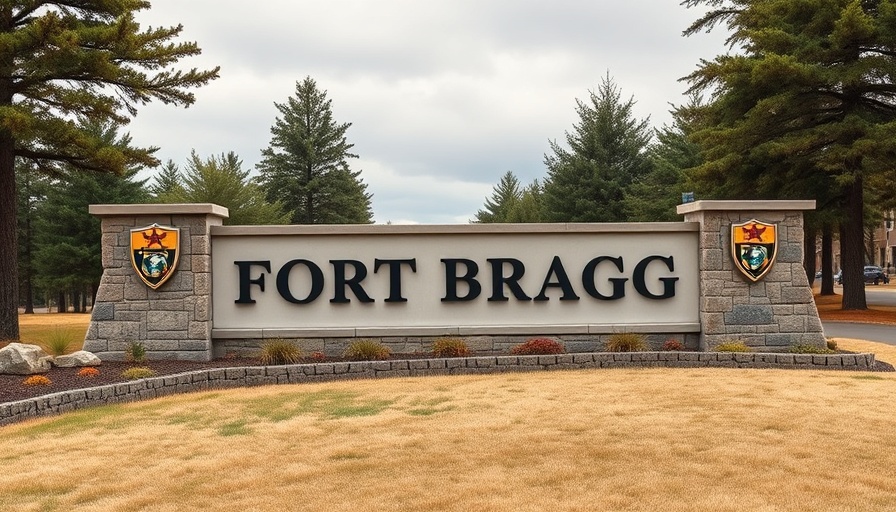
Fort Bragg Returns: A Celebration of Valor and Legacy
In a historic rededication ceremony, the U.S. Army has officially renamed Fort Liberty back to Fort Bragg, now honoring the memory of World War II hero PFC Roland L. Bragg, instead of the controversial Confederate general after whom it was previously named. Defense Secretary Pete Hegseth’s announcement marks a significant shift in acknowledging the contributions of modern heroes over historical figures steeped in controversy. This decision not only restores a name but revitalizes the narrative surrounding the prominent military base in North Carolina, which plays a crucial role in national defense.
A Legacy Worth Honoring
PFC Roland L. Bragg was a United States Army paratrooper whose bravery during the Battle of Bastogne significantly impacted his fellow soldiers. The base, now serving over 260,000 personnel, reflects a culture of toughness and commitment to military excellence, a stark contrast to the outdated notions attached to its former namesake. Honoring Bragg's legacy sends a powerful message about valor and duty while reuniting the community around shared values and respect for modern service members.
Community Reactions: A Complex Dialogue
The renaming of Fort Bragg has sparked complex discussions within the community. Local representatives, like Rep. Richard Hudson (R-N.C.), articulated the dilemma surrounding the former namesake, acknowledging the passion on both sides regarding its history. The process was fraught with mixed feelings as those who cherished the legacy of Braxton Bragg felt sidelined, while advocates for change viewed this as an opportunity for reconciliation and healing.
Lessons from History: Reflecting on Military Renaming
This renaming initiative is reflective of a larger trend across military installations in the United States. Following the 2021 National Defense Authorization Act, several bases were stripped of their Confederate names, emphasizing a shift towards honoring contributions rather than contentious pasts. Bases like Fort Moore and Fort Lee are slated for future renamings, echoing a desire to redefine legacies towards more universally admirable figures.
Leadership and Future Directions
As the Army embraces these changes, it reflects a commitment to evolving the narratives surrounding its history. Leaders at the Pentagon indicate that more renaming initiatives may be on the horizon, steering military culture towards inclusivity and respect. Communication and community engagement will be paramount in these transitions, enabling a collective acknowledgment of both historical injustices and heroic deeds.
The Significance of Fort Bragg in National Defense
Fort Bragg is not just a name; it represents the heart of America's military readiness. It serves as a vital force projection platform, housing elite units that form the backbone of U.S. military capabilities. The base’s rebranding highlights its role as a leader in modern military training and operations, reinforcing its position as a key player in strategic defense initiatives globally.
Embracing New Beginnings at Fort Bragg
The recent ceremony at Fort Bragg was steeped in nostalgia and pride, featuring military honors and the presence of Bragg’s descendants, who shared touching memories of their grandfather's humility and valor. This celebration stands as a reminder of the importance of acknowledging and learning from the past while paving the way for a more enlightened future.
This renaming marks not just the restoration of a name, but a testament to the enduring value of service, sacrifice, and the evolving ethos of the U.S. military. As America moves forward, honoring figures like PFC Roland L. Bragg will enrich this journey, serving as inspiration for current and future generations of service members.
As our nation confronts its legacy, learning about these changes is essential. Stay tuned to local news and updates to follow further developments regarding military installations and their significance in our nation’s history.
 Add Element
Add Element  Add Row
Add Row 



Write A Comment